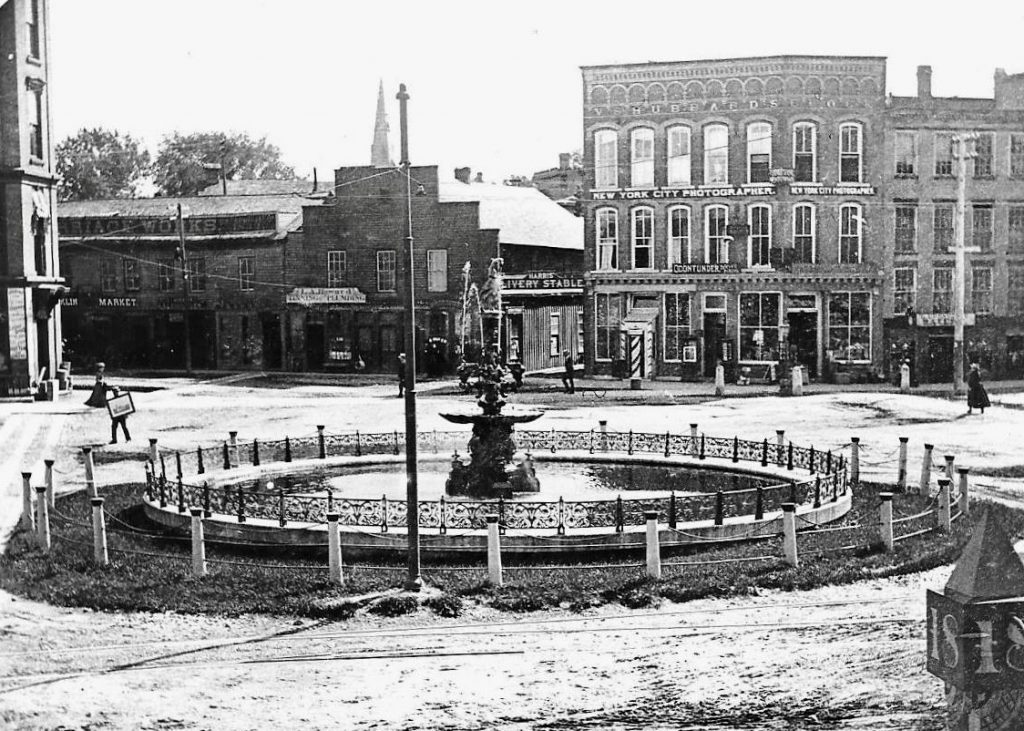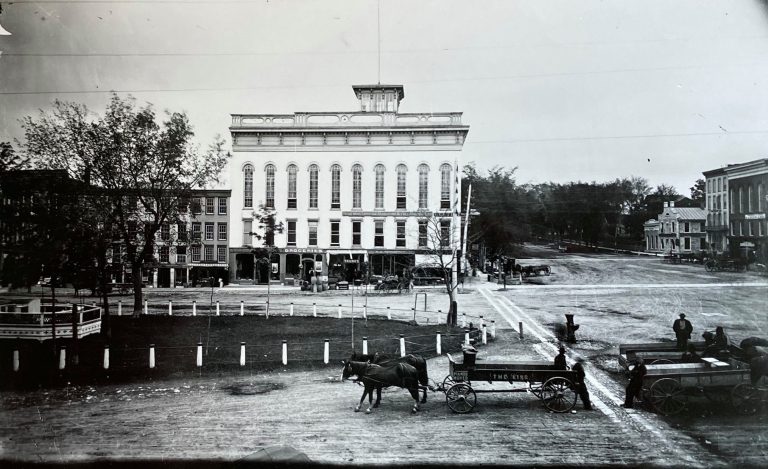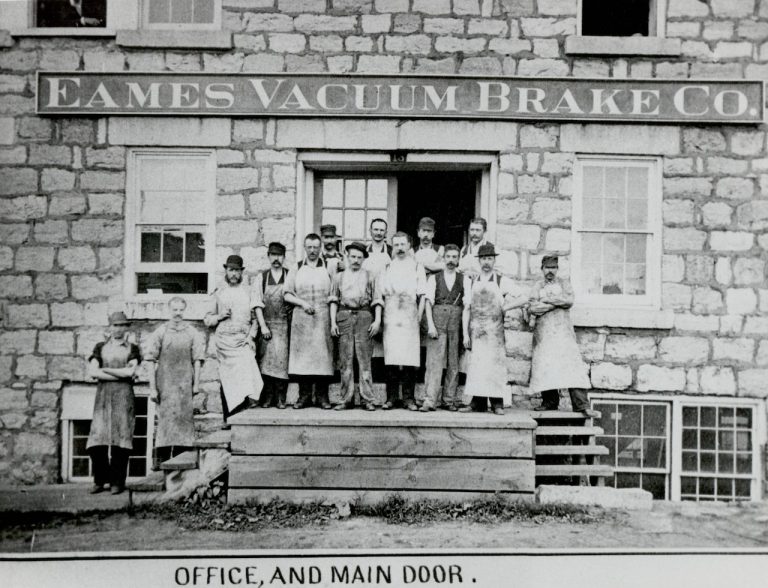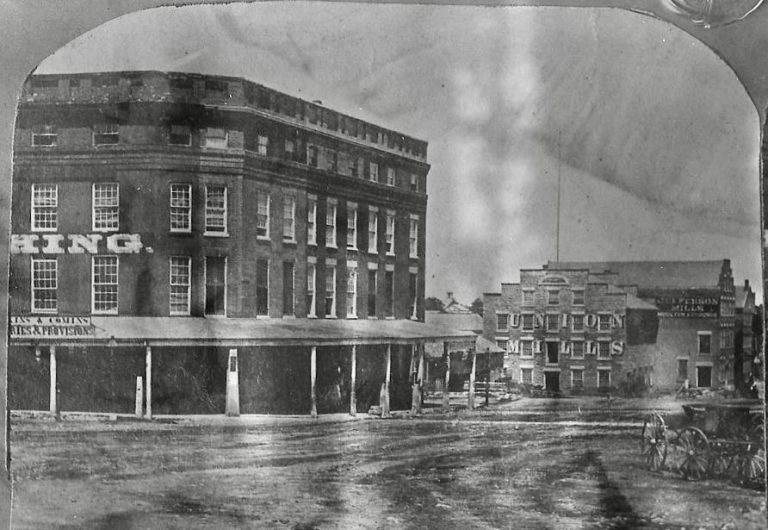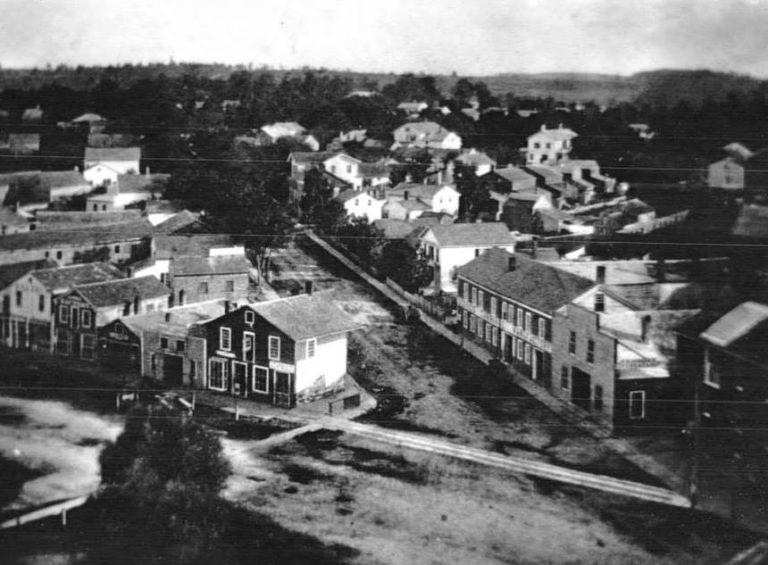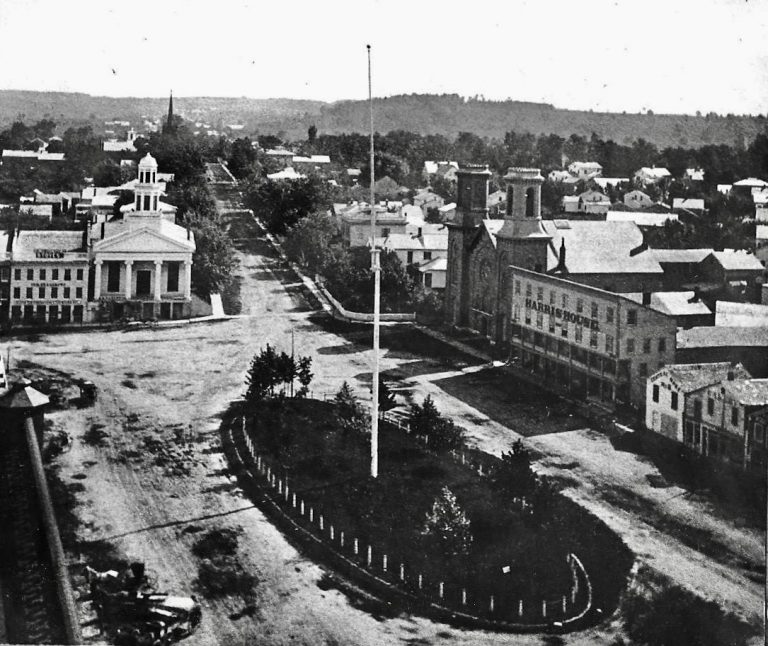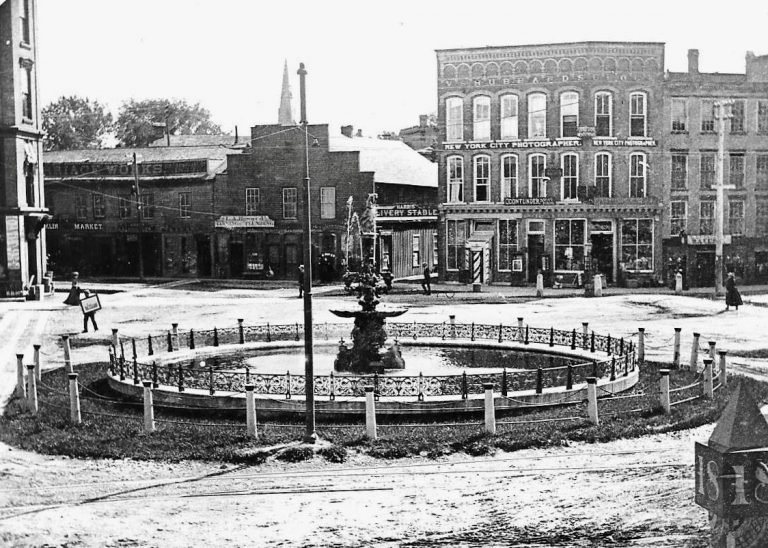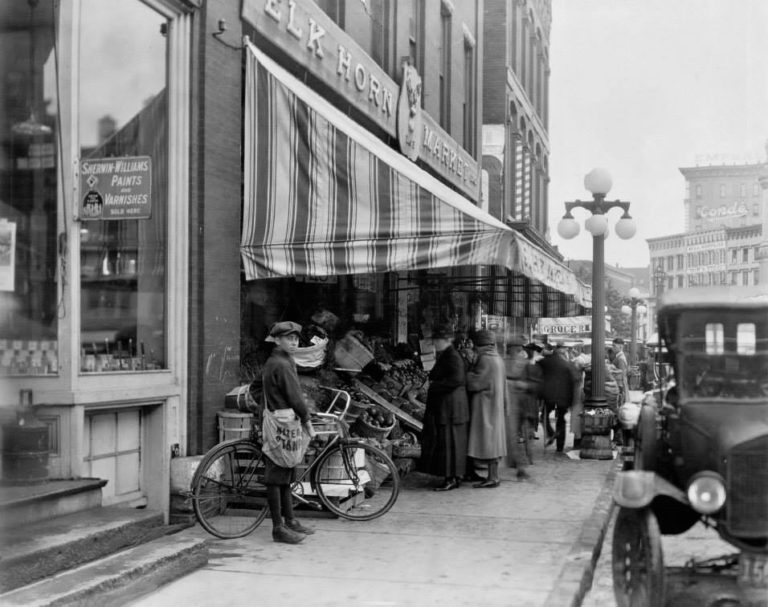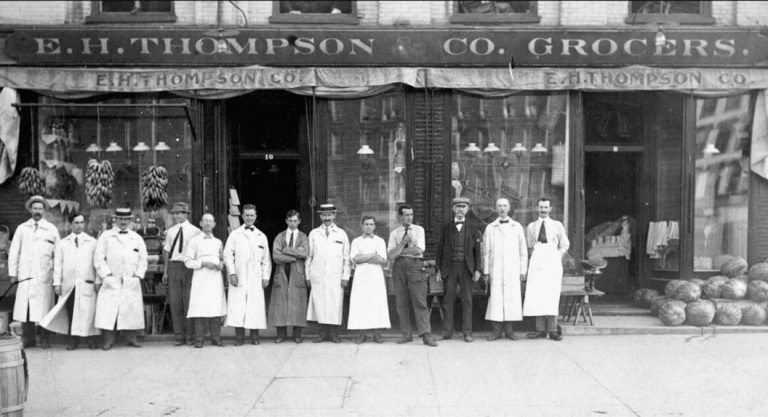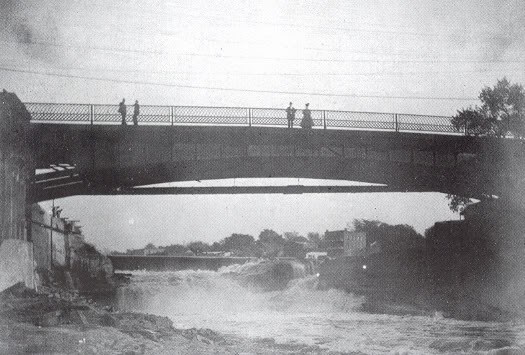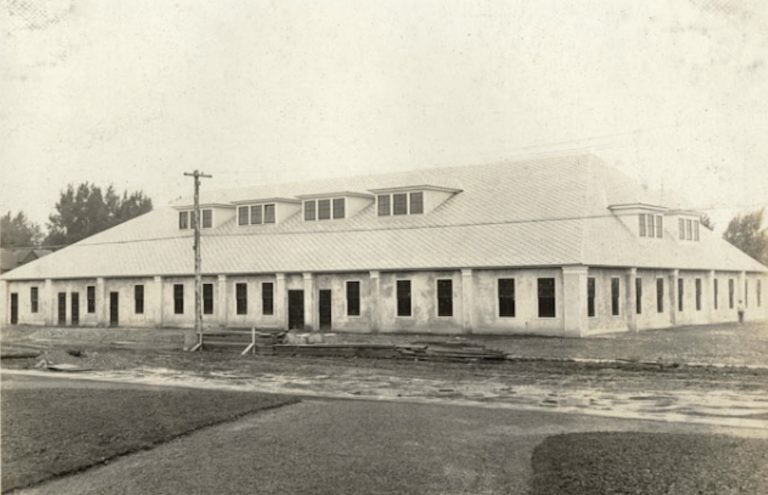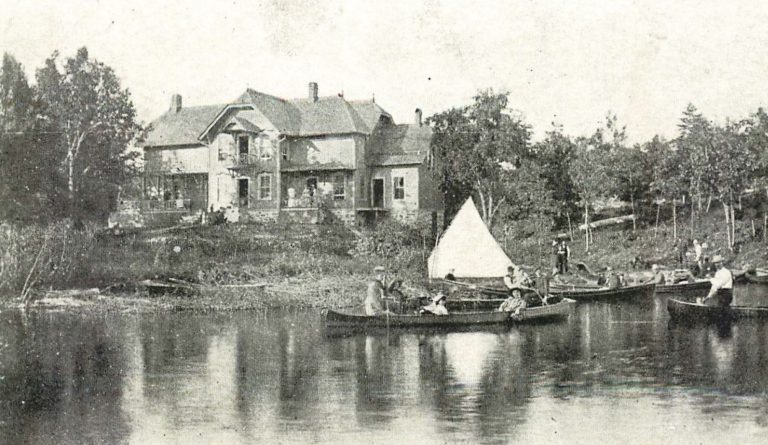Recollections of an Old Jefferson County Boy, S. A. Webb, May 26, 1888.
The following, Recollections of an old Jefferson County Boy, a former lawyer, S. A. Webb, who wrote to the Watertown Daily Times on May 26, 1888 after having read a piece about “Early Watertown.” The Early Watertown columns were featured for a number of years, mostly by a variety of citizens/former citizens, reminiscing about the older (early to late 1800s) of the village/city of Watertown and surrounding area. Some of the columns, as mentioned below, were written by Marcellus Massey, son of Hart Massey, who was a former director of the Brooklyn Academy of Music and President/Director of the Rome, Watertown & Ogdensburg Rail Road.
Below is the complete letter sent from S. A. Webb, Esq., featuring a humorous tale of a man with a bounty on his head.
To the Editor of the Daily Times:
I am down here about ninety miles south of Tampa, on the Gulf of Mexico, for my health. My son, Charles A. Webb, who is in the employ of Eames Vacuum Brake company, of your city, sends me your daily, and I read it.
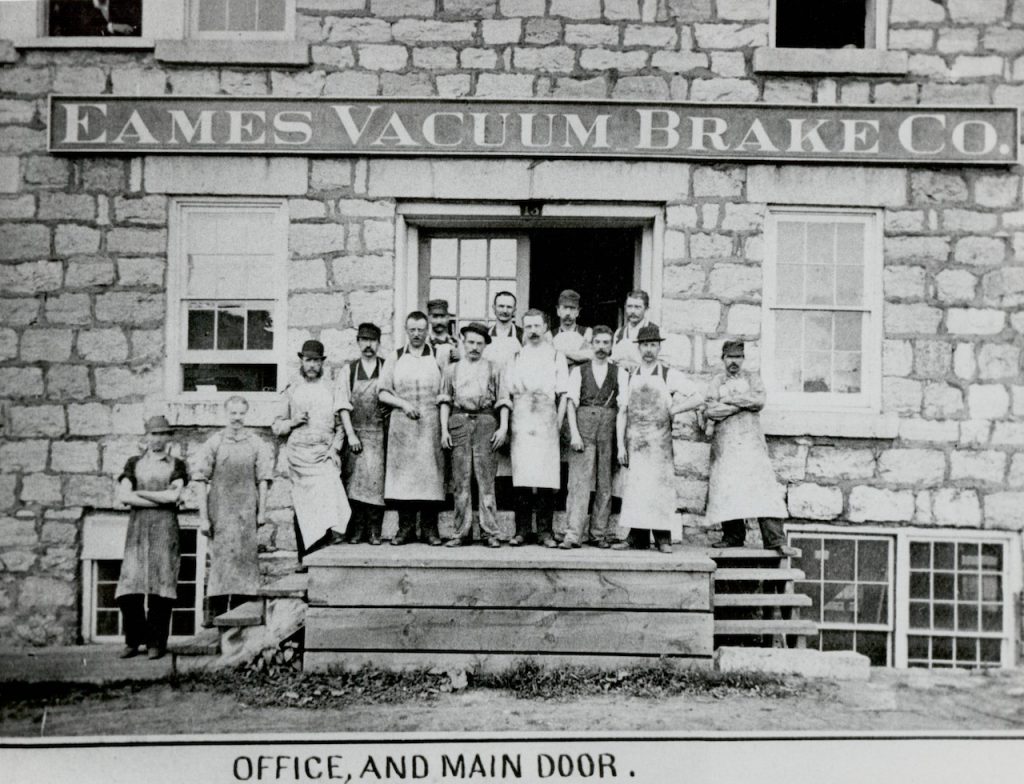
I was Jefferson county born. My father was William Webb, the son of old Captain Webb, of the Privateer service of the United States, in the war of the Revolution, who came from Connecticut with the early settlers of the “Black River country,” and took up track of land at “Perch River,” and was one of the band who with General Loomis, of Brownville, and others, “stole the town meeting of the town of Brownville,” and was well acquainted with the early settlers of Watertown.
Many years ago, when I was practicing law in your county, my father was with me at Watertown, and as we were standing at what is now the upper end of your “Public Square,” below the crosswalk between Washington Hall and Bushnell’s store, father said to me, “This is about the place where the first grist-mill in Watertown stood. It was the stump of a large tree hollowed out by gouge and howel, into the shape of a large mortar, to pound grain in, a large log lay some eight feet long, tapered by the axe, and rounded at the large and for a pestle, being suspended from a spring pole.
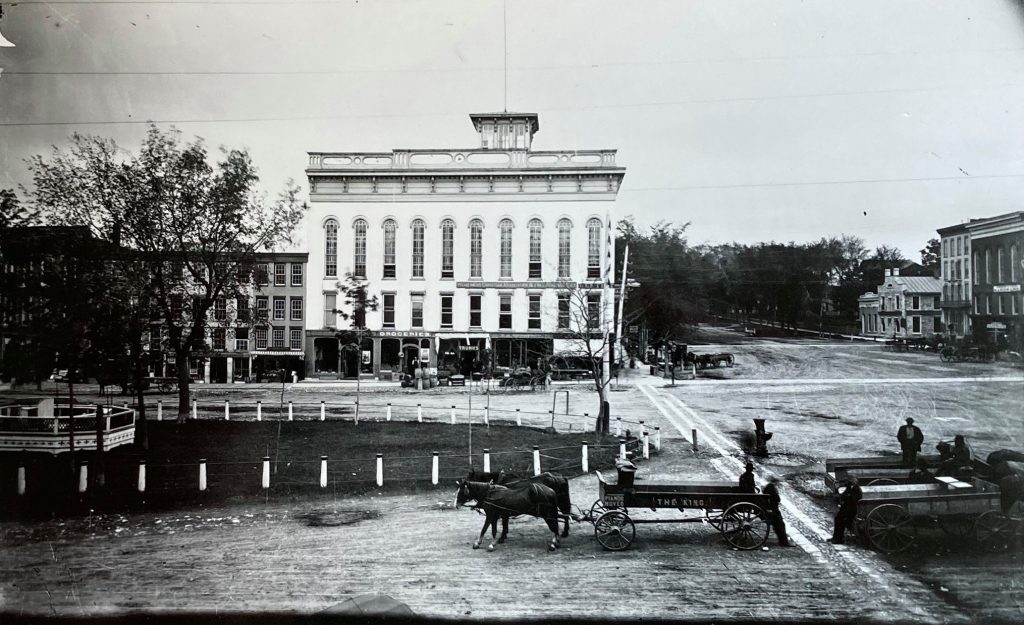
At the lower end, about three feet from the end, was bored a hole through the pestle, and an ironwood stick from a staddie, was passed through, and stuck out some 2 1/2 feet on each side. We poured a charge of grain into the mortar, and two men took hold of the ends of the stick, and pounded the grain into flour or meal. About the mill were split basswood seats, and the settlers used, near sundown, to gather here, and chat and smoke.
I remember one afternoon, being at Watertown, to see Abijah Farwell, who was a blacksmith, about some business, and I went there to speak with him. As we were sitting talking, a man came up, grasping a long stick, which he used as a cane, and looking as if he had traveled some distance. “Is Abijah Farwell here?” he inquired. Mr. Farwell arose from his seat, and said, “I am Abijah Farwell. What do you want of me?”
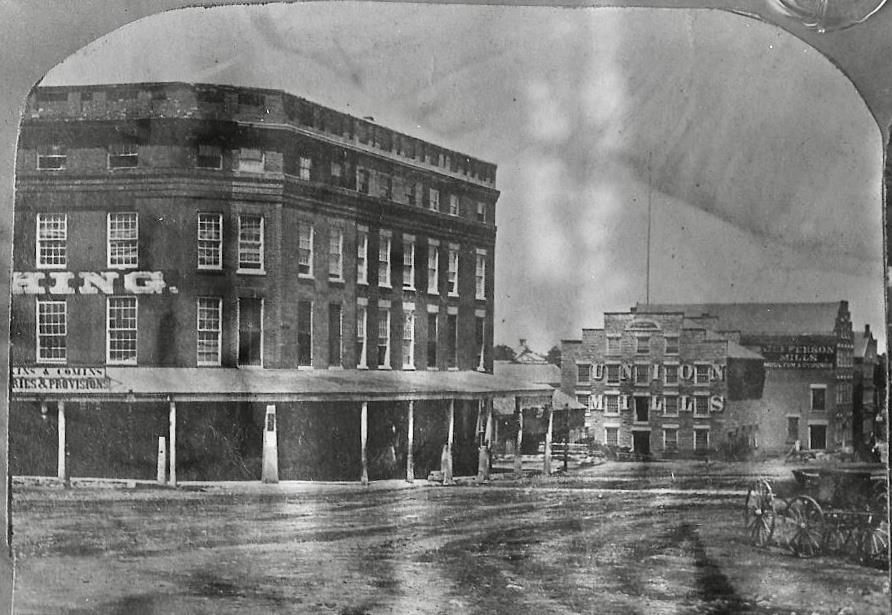
“Well,” the stranger answered, “my name is Ben Carter, and I am lumbering on Black creek below French creek, (now Clayton,) and I heard that you offered ten dollars for my head. I have walked all the way here and brought my head with me, and I’ll take the ten dollars.”
Mr. Farwell straightened himself up, smiling, and replied, “It’s a d— lie; I never offered ten dollars for your head, Mr. Carter. I might have offered twenty shillen for it, but by G—, I never offered more than that.”
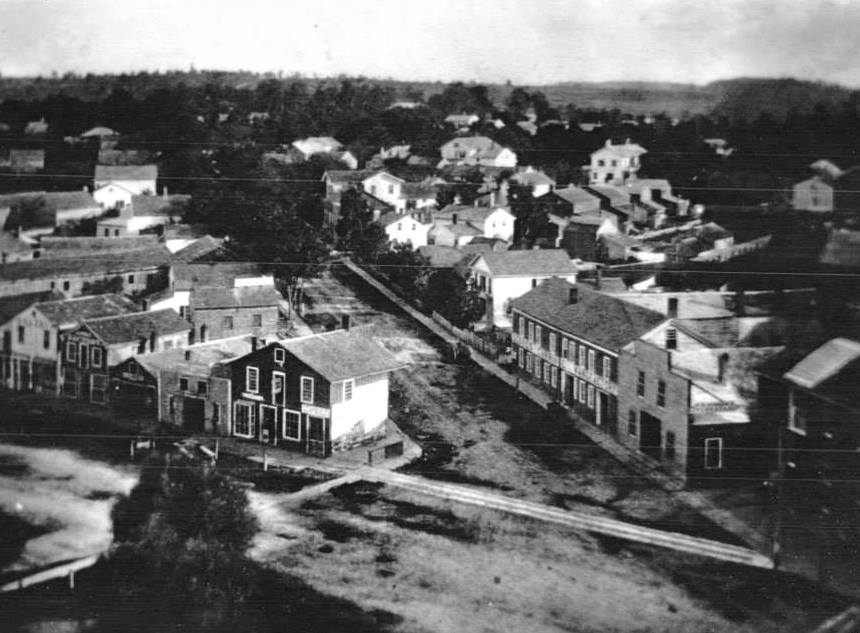
The stranger stepped forward, extended his hand, saying, “Give me your hand, ‘Bige Farwell, I’ll take the twenty shillings,” at which all laughed heartily, and Farwell said, “Let’s go up to the tavern,” and the company went, and ‘Bige called for the drinks. The tavern was near where Paddock’s bank used to be.
I gave this anecdote to Dr. Hough, who compiled the “History of Jefferson County,” some years ago, but I do not remember whether it appeared there, or not. I was induced to contribute this anecdote of ‘Early Watertown’ from reading the sketches given in your paper by Mr. Marcellus Massey of Brooklyn.
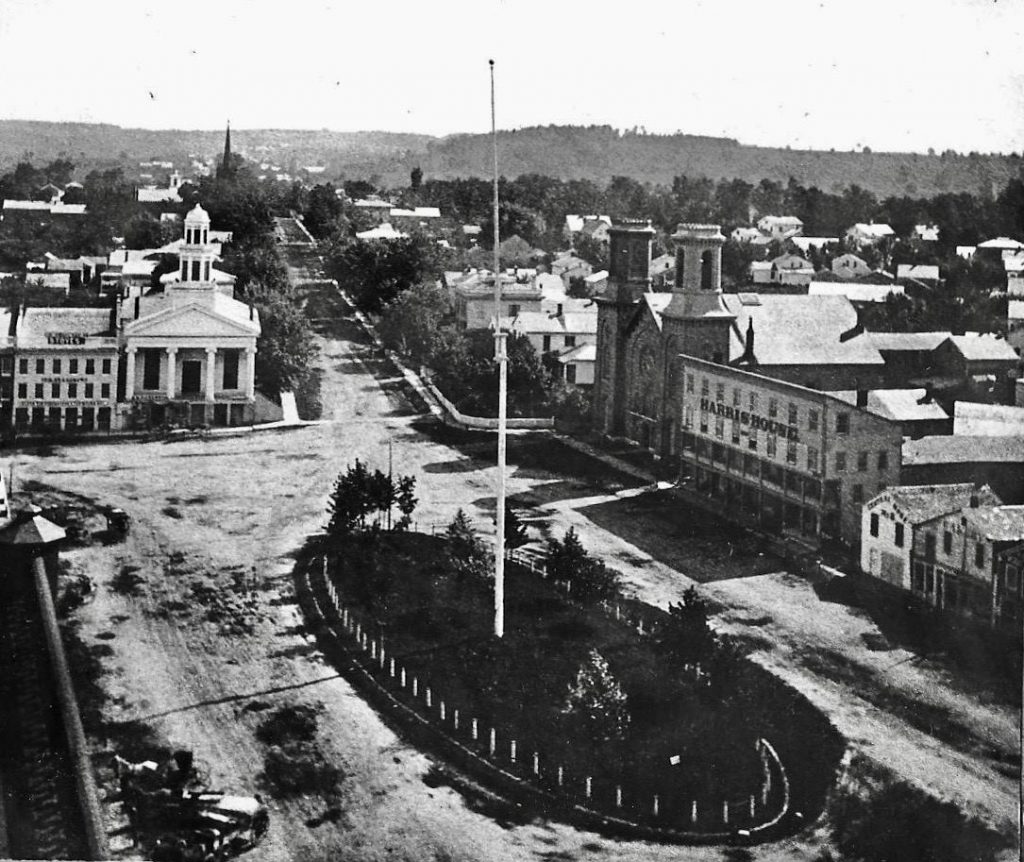
I remember the old ‘Mansion House,’ of which he speaks. It had a bell upon it, made of a bar of steel bent into the form of a triangle, which gave a musical sound, and I remember of hearing that the bell was the invention of Mr. William Smith, long since passed away.
I remember Abijah Farwell, a strong, square-shouldered man, one of the ancestors of the Farwells of Watertown.
‘Cory’s Punch Bowl’ had not yet been placed in Public Square, when my father pointed out to me the location of ‘the first grist mill of Watertown.’
Yours, S. A. Webb
